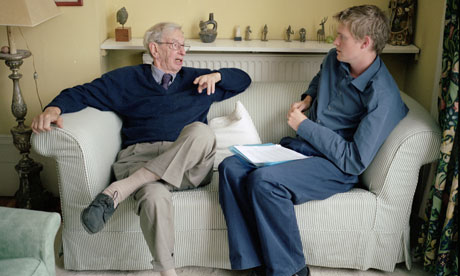Turns out that not only is he alive and well at 93, he has even published a book:
Eric himself has changed. He suffered a nasty fall over Christmas and can no longer escape the physical constraints of his 93 years. But the humour and the hospitality of himself and his wife, Marlene, as well as the intellect, political incisiveness and breadth of vision, remain wonderfully undimmed. With a well-thumbed copy of the Financial Times on the coffee table, Eric moved seamlessly from the outgoing President Lula of Brazil's poll ratings to the ideological difficulties faced by the Communist party in West Bengal to the convulsions in Indonesia following the 1857 global crash. The global sensibility and lack of parochialism, always such a strength of his work, continue to shape his politics and history.I wish I were this alive even now, while I am only half his age!
Even though I have always disagreed with his ideological framework, I am always humbled by how much he knows (and by contrast, how little I do!) But, there is no disagreement with the following point he makes:
What I'm saying now is that the basic problems of the 21st century would require solutions that neither the pure market, nor pure liberal democracy can adequately deal with. And to that extent, a different combination, a different mix of public and private, of state action and control and freedom would have to be worked out.I wish that in the US we would get rid of the rigid political/ideological bottom-line that the partisans spout, and begin to explore a 21st century approach. Which is why I hope the LibCons would be daring enough ...
What you will call that, I don't know. But it may well no longer be capitalism, certainly not in the sense in which we have known it in this country and the United States.

No comments:
Post a Comment